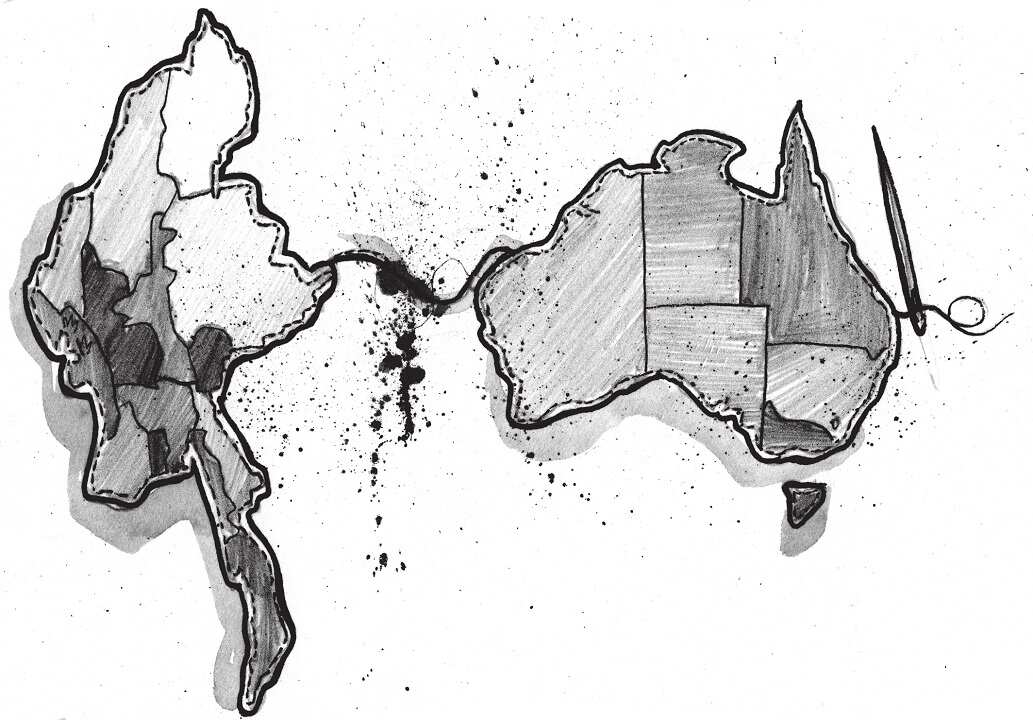This is one of several interviews from the SBS special feature 'Faces of the Rohingya'. Watch Dateline's investigation 'Myanmar's Killing Fields' at the end of the article.
Jumabi Mohamad Ali sometimes goes to Rohingya Bazaar for a meal with her husband, Ali Sharif, when she is too tired to cook. It’s the place to get the food she loves.
“Everything is curry. Spicy curry,” she says, warmly.

In the bain-marie, there are two kinds of fish and chicken curries, but the beef is the hottest of all.
Jumabi is 28-years-old. Her children are 14, 12 and 10. She was born in Yangon, the capital of Myanmar, and grew up in Malaysia, where her family fled after her father was murdered by Buddhist extremists.
Her mother had seven children to support, so she worked illegally seven days a week, cleaning and cooking for other families - she still does. Jumabi and her siblings had to work too.
Jumabi has nightmares about the sea. She’s had two lives, she says: one ended on the boat; another one began in Australia.
She opens a folder to show off a sheath of laminated certificates, detailing the volunteering she has done and the courses she has completed since she arrived in Melbourne in 2013.
At a women’s centre she learnt embroidery - she stitched colourful maps of Australia and Burma side-by-side and hung them on her wall.
READ MORE: Faces of the Rohingya
She began volunteering at Springvale Rise Primary School in 2016, and a year later, she started working there full time as a multicultural educator, running playgroups and supporting teachers.
On Mondays and Tuesdays after work, she goes to English class.
“When my mum called and I told her I found a job here, she couldn’t believe it,” Jumabi says.
“Sometimes she cries. She says, ‘My daughter is very lucky.’”
Watch Dateline's 'Myanmar's Killing Fields' below.

